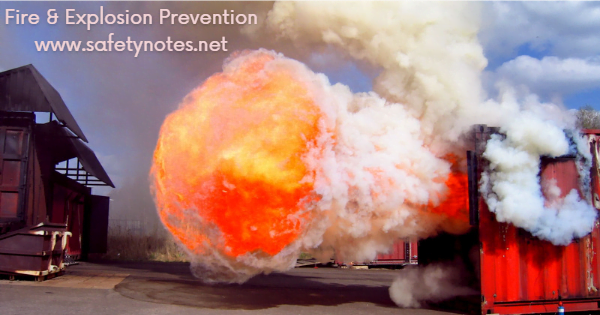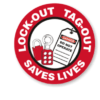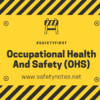The effects of accidental fires or explosions can be devastating in terms of lives lost, injuries, damage to property and the environment, and to business continuity.

What is a dangerous substance?
Dangerous substances are any substances used or present at work that could, if not properly controlled, cause harm to people as a result of a fire, explosion or similar incident, such as an uncontrolled chemical reaction.
They can be found in nearly all workplaces and include such things as solvents, paints, varnishes, flammable gases, liquefied petroleum gas (LPG), dusts from machining and sanding operations.
What is an explosive atmosphere?
An explosive atmosphere is a mixture of a dangerous substance or substances (gas, mist, dust or vapor) with the air, which has the potential to catch fire or explosion.
An explosive atmosphere does not always result in an explosion but, if it does catch fire, the flames travel quickly.
Fire & Explosion Prevention – Control Measures
Proper Storage of Material
- Ensure flammable materials are properly stored.
- Flammable liquids must be stored away from ignition sources and in shaded / cool places.
- Limit what is taken onto site from the storage to what is needed for a day’s work.
- Electrical ignition hazards
- Do not overload circuits.
- Use only approved electrical devices.
- Discard use of damaged or worn wiring.
Good Housekeeping
- Reduce amounts of flammable and combustible materials at site.
- Make rubbish clear away promptly and regularly.
- Avoid unnecessary stockpiling of combustible material, e.g. polystyrene, thin tarpaulin, plastic sheets, etc.


